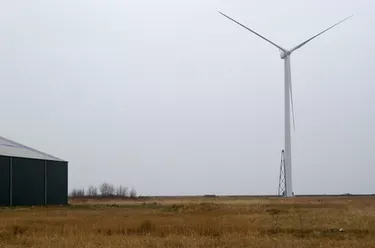
A land lease, also called a ground lease, can mean different things. It can be a rental of farm land for growing crops or raising animals. It can mean a cell phone company leasing space and access in the middle of a property for a cell phone tower. It can mean a business constructing and owning a factory building, but only leasing, usually long term, the land underneath. With all of the above lease agreements the lessor and lessee must agree on a value for the land lease. It must be mutually beneficial to both parties.
Step 1
Determine the use of the land by whoever is leasing it. Will the owner still be using the land? What is the value to the person who needs to lease the property? Will the owner's use be lessened. Let's use the example of a windmill to generate power. Is the location a hill near a canyon that is the only place for the wind farm? Or is the location a flat farm on a windy prairie where the leasing company can locate it on any of dozens of farms nearby instead? Consider if the windmill will effect your farming adversely. Also, remember the duration of the lease. If the lease lasts 20 years and you want to subdivide and sell in 10, will you be able to? A new buyer is subject to any lease agreements in place.
Video of the Day
Step 2
Consider the impact on your existing use of the land. In the case of a wind farm, will access roads for maintenance change your irrigation flow? Will easements for access cut into the amount of land you can farm? Make sure the compensation is greater than the inconvenience or loss of income from the lease holder's needed use.
Step 3
Negotiate and draw up a contract that represents the full terms of the lease. Include the length of time the lease will run, options for renewal, recourse for breaking the lease and so forth. Spell out reasonable use and needed restrictions. An attorney who specializes in ground leases should review the paperwork. Be represented by an expert other than the one the company who is leasing the property provides. Take the long view of what your use of the property will be after the lease as well as during. Value any restrictions and loss of income from the lease.
Video of the Day